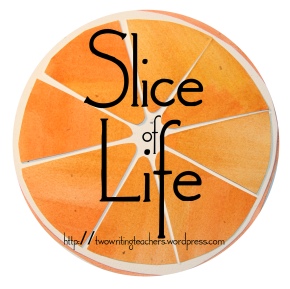
The phone rang on the wall in our classroom and my coworker answered. It was for me, which was the first sign of trouble. My son's teacher began talking and before I had time to wonder if someone was sick or hurt, I realized the call was about a different kind of trouble. "The bus ride in the afternoon has been a problem.". . ."unkind to a student from another school". . . "multiple sources reported". My heart sank to the pit of my stomach.
Sometimes, I feel like we (my husband and I) are doing a great job teaching our kids to be kind and compassionate. They can all be exceptionally thoughtful at times, sometimes unexpectedly so. I notice those moments when they show us the best of themselves as they truly look out for one another or their friends. A lot of times, I am just not sure. Then, there are those "What were you thinking???!!!" moments, like this one, when I wonder what we are doing wrong. He can have difficulty seeing the perspective of others, though we go over these situations often, but he does eventually understand. The question is how to bridge the understanding within a supportive environment after the fact and creating independent understanding that can stand on it's own when we the parents aren't around to help.
Over the weekend, I picked up my nook and tapped and swished to a book I started reading well over a month ago and just hadn't returned to. This day, I returned to Wonder hoping for wisdom to woosh from the pages. As it turns out, what is great about this book is not that it is full of answers. Wonder is simply and complexly a weave of characters faced with choices and making choices, good and bad, every day. (If you have, live with or work with children in the tween years, I highly recommend reading/sharing Wonder, by RJ Palacio)
A particular teacher is highlighted in this book for sharing his "monthly precepts", (a general rule to regulate behavior or thought) He begins in September with, "When given the choice between being right and being kind, choose kind." I hear this phrase "choose kind" now everywhere I turn, it seems. I latched onto it myself, after first beginning this book over the summer, because I could see so many opportunities, for my boys in particular, to be more compassionate with one another. I keep trying to encourage them to see the gray areas between the black and white thinking which seems to be so prevalent in their brains, the black and white thinking that drives their incessant need to be right even at the expense of relationships with family, classmates, friends.
Some of the characters in Wonder are around my son's age, but even the older ones are faced with choices. Choosing kind sounds easy, perhaps that is part of the nature of a precept (to sound, but not actually to be easy to carry out) This book reminded me that in real life and especially at this age, it can be hard , really hard, to choose kind. Even the most likeable characters in the book make missteps. I can reflect on my own life's experiences and relate to different characters at different times, recall my own missteps and misunderstandings. I can see through the grey areas in my mind now to the old roads of black and white that once guided my thoughts, and I realize my kids are living those now. I can recall the times I did or said something that for days or weeks or years after, if someone asked me why, I would not be able to answer. I have lived through that regretful moment of knowing, realizing, I didn't choose kind. I have wished I could go back and fix it, and I vaguely am aware of the realization that grew as I got older, that 'next time' was my opportunity to fix it, to do better.
This somehow makes me feel slightly relieved, remembering that I have done dumb or dispicable things myself. When we look at our kids and hope for them, it is easy to forget how hard it is to be young as we joke, "you've got it so easy", "wait till you have to go to work for a living". But if we set aside the romanticised memory of childhood, we would admit the tween years particularly are hard work too, they are growing into humans and that is not an easy simple task. On navigating the tween years with my kids, I hope to also Choose Kind, as often as I can, and remember as humans we do the best we can each moment with what we know now, in that moment. The next moment might change what we knew a minute ago.
Great message to all of us! Also, a great reminder to me as I work with both tweens and teens; choose kind! Thank you.
ReplyDeleteChoosing kind is a strong message to bring to all, especially adolescents who are grappling with so many issues. Your reflection is a thoughtful piece from a parent's perspective and should be read by many.
ReplyDeleteI can't remember being unkind when I was young, but I do know I didn't step up & friend anyone whom I didn't think 'worthy' in some way. I suspect it's another way to be unkind, to be a 'bystander' that doesn't do anything. And I remember trying hard to figure out where I fit, wondering if I did fit. You've described those years of trepidation well, trying hard to make decisions, & sometimes making the wrong ones. Best wishes in your navigating this with your sons.
ReplyDeleteSuch a wise post. Parenting is hard during those tween years - but that's when it really counts the most, when we need our kids to understand what it means to "Choose Kind" no matter what.
ReplyDelete